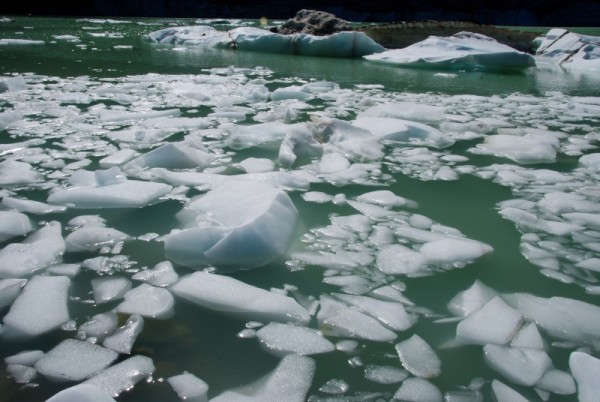For almost 40 years, Canada has ensured that drilling for oil in Arctic waters could only be done with extreme caution.
Since 1976, a special regulatory requirement has protected Arctic wildlife and wilderness from a catastrophic offshore oil spill. However, the National Energy Board has put that requirement in jeopardy.
It’s called a same-season relief well requirement. Energy companies must prove they can stop a ruptured oil well by drilling a relief well in the same season. No proof, no permission to start a project.
By agreeing to consider Chevron and Imperial Oil’s request for an exemption, the National Energy Board has put that requirement in jeopardy.
Why is it needed?
If energy companies cannot contain a spill that started in April by October, oil could leak under the winter ice for months.
On Aug. 15, on behalf of WWF-Canada, we told the Board to preserve this policy. Why? Because Chevron and Imperial Oil want exemptions so they can drill in the Beaufort Sea. They’ve told the Board that the same-season relief well policy is “not feasible” when drilling in deep Arctic waters.
Worrisomely, the Board will consider the companies’ proposals for relief well “equivalency” and could decide to abandon this long-standing requirement.
Why is Ecojustice involved?
The Board is accepting comments on this issue. Our objective is to help WWF-Canada show the Board why the same-season relief well requirement cannot be waived. Like our clients, we want to prevent oil from damaging Arctic wilderness and wildlife.
Right now the existing policy is the best option. The United States, United Kingdom, Norway, and Greenland — countries engaged in northern offshore drilling – all have similar policies.
In our letter to the Board, we explain what energy companies must do to meet the requirements of the same-season relief well policy. We’ve provided some historical context on the same-season relief well issue, which was reviewed in 1991 and 2011. Both times the government decided the environmental risks of abandoning the policy were too grave.
The dangers of offshore drilling
In 2010, oil from BP’s Deepwater Horizon well leaked into the Gulf of Mexico for 87 days. The damage ravaged marine and wildlife habitats. A relief well was required to stop the blowout. Chevron and Imperial Oil want to dig deeper than the Deepwater Horizon well and in an environment that’s unforgiving. And they want to do this without the same-season relief well requirement.
We should be clear about something: The Board’s decision on same-season relief wells alone is not permission for Chevron or Imperial Oil to drill in the Beaufort Sea.
There are still more regulatory hurdles ahead and we’ll be there on behalf of WWF-Canada. They want the Board to hold a full hearing on this issue. We’ll help them present evidence about this proposed project’s possible environmental impacts..
There’s still time to make your voice heard. And there’s still time for Canada and northerners to decide that these projects present too great a risk to the unique northern environment.
By Will Amos, staff lawyer, and Delaney Greig, summer student

